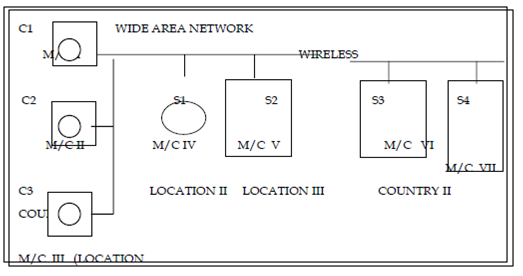Advantages of Client-Server Computing
Client-Server setup facilitates an allocation of resources and better planning when you need to implement a computerized business solution. By Client-Server computing it is a lot simple to access information. An computing environment can be heterogeneous with the best of the operating systems, the computing platforms and languages and the data access to the end- user can still be distributed and transparent. Operations of a corporate business setup can be extensive and the location can no longer be a constraint.
In a nutshell, the benefits of Client-Server computing are as given below:
• Access to more information is a lot simpler
• Against obsolescence Investments can be protected
• Marginalised and Planned investments
• OS and software tool knowledge, Free of processor and operations dependencies
• Partitioning of applications
• Enterprise-broad transparent resource sharing
• Client or Server Computing is Simply Implemented
• Current Desktop Machines Are Enough
• Minimal Training Is Needed
• All Data Are Relational
• Development Time Is Shorter
Implementing distributed remote data sharing in a transparent way can be done using a client-server setup. The subsequent figure described this additionally.

Figure: Wide Area Network
In the above figure, the client-server setup is explained in a massive WAN wide-area network. WAN spreads across countries and regions and taps the resources by communication links involving telephone lines, satellite communication network. By proper protocols or arrangements and the machines, the clients running in those machines can interact with servers of their choice anywhere and anytime. The servers could be any RDBMS and the machines running those servers could be from multiple vendors like SUN, IBM, HP and many more.
Servers can also share multiple clients and clients can run on PCs in bitmapped Graphical Users Interface environments. Servers can run on even mainframes or Super-mini machines. Together what you achieve is the highest utilization of the resources transparently in an enterprise-wide network. The RDBMS of modern age are designed to take benefits of client-server computing. Instances of client-server RDBMS which run on a variety of platforms include SQL SERVER, INFORMIX, Oracle, Sybase, and Ingres so on.